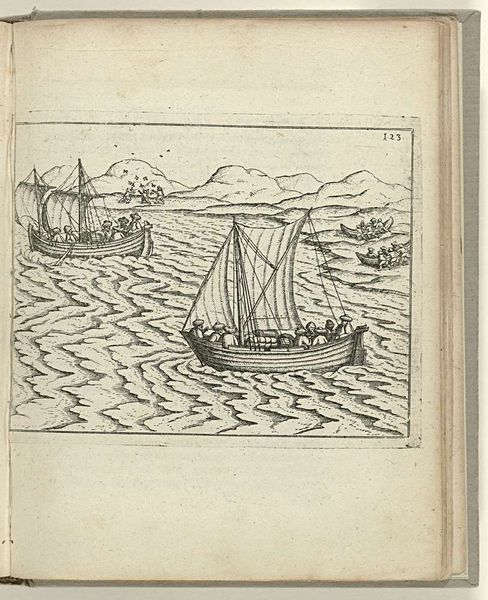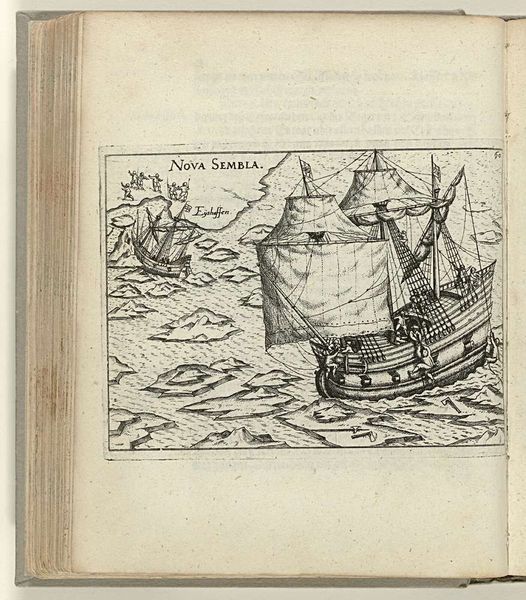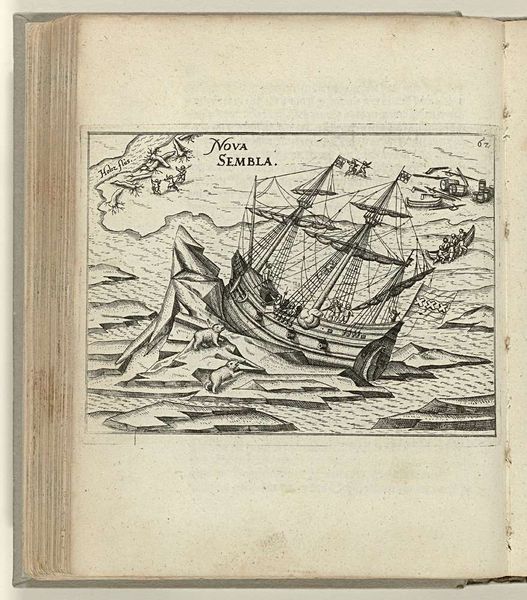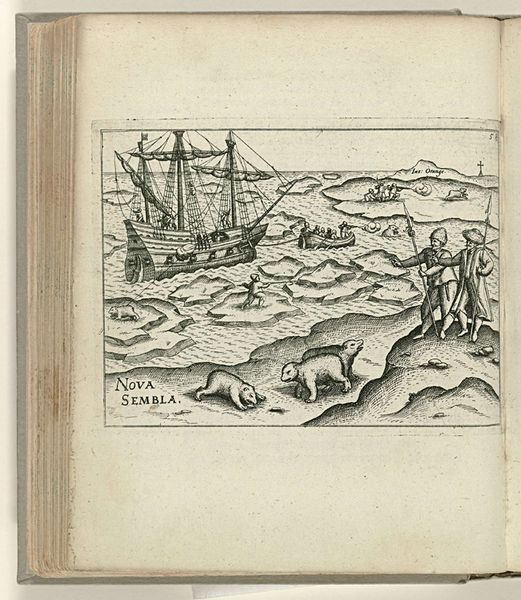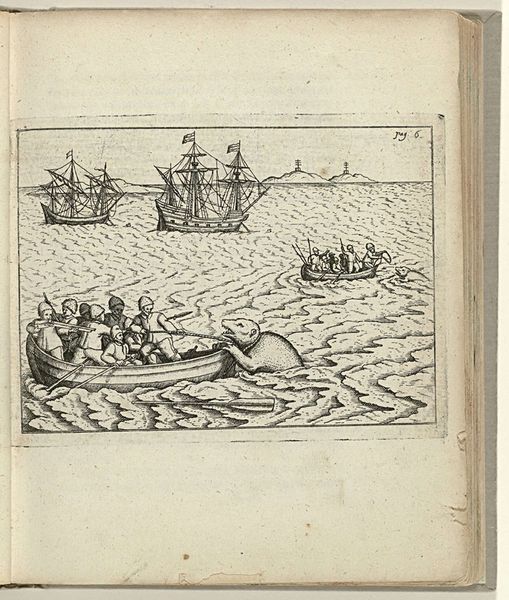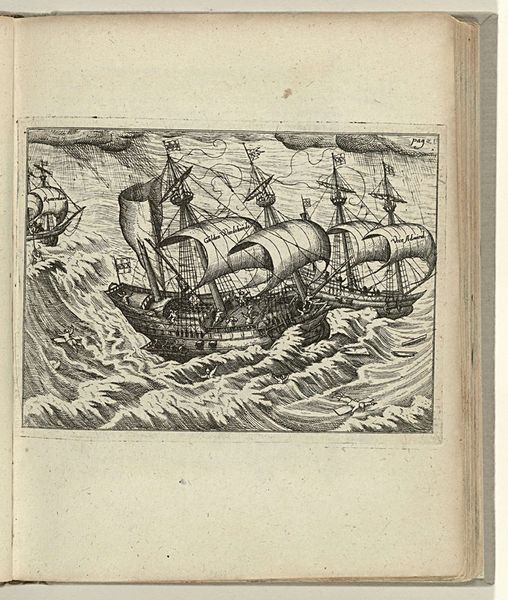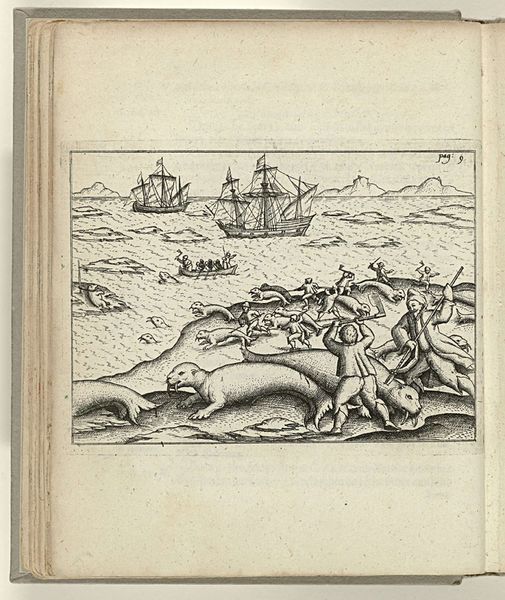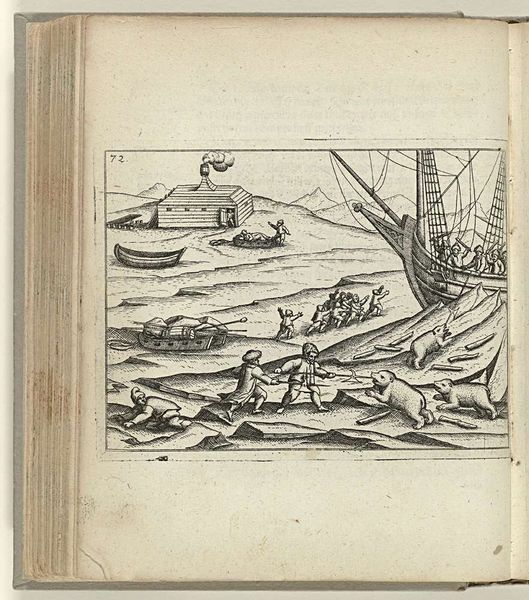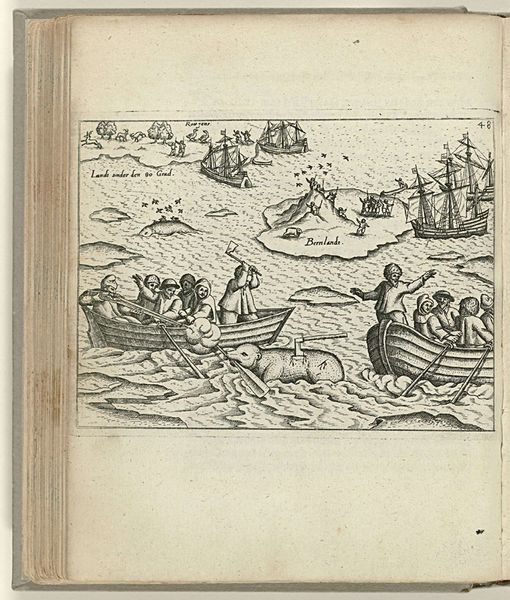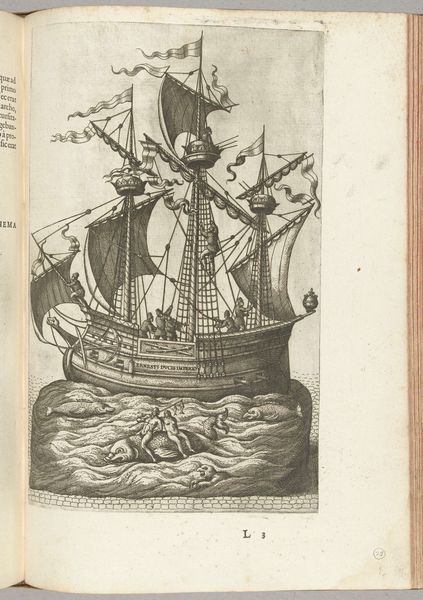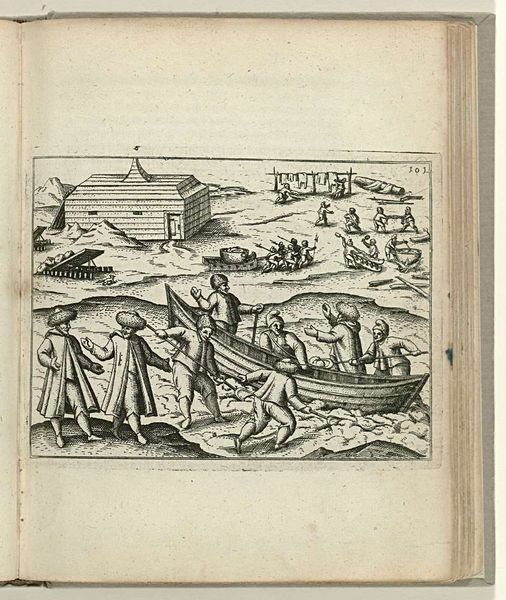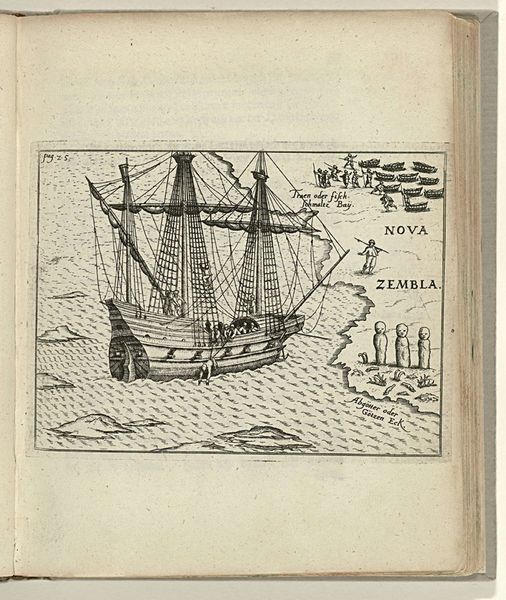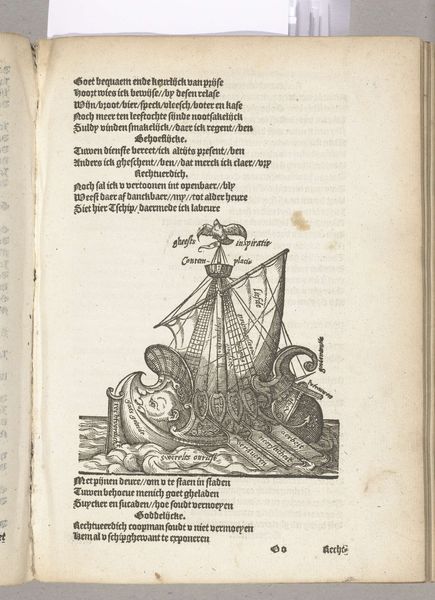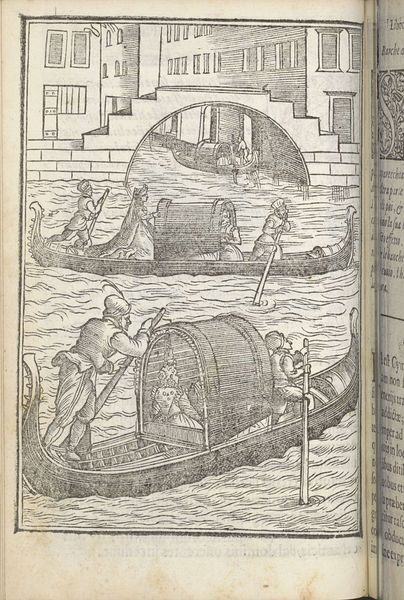
print, engraving
#
toned paper
#
dutch-golden-age
# print
#
pen sketch
#
sketch book
#
landscape
#
personal sketchbook
#
ink drawing experimentation
#
pen-ink sketch
#
line
#
pen work
#
sketchbook drawing
#
storyboard and sketchbook work
#
sketchbook art
#
engraving
Dimensions: height 105 mm, width 145 mm
Copyright: Rijks Museum: Open Domain
This print, dating to 1596, of two ships and a celestial phenomenon, was made by an anonymous artist with the technique of engraving. The work's power comes from the stark contrast of the ink with the paper. Note how the burin’s precise, controlled marks render the complex details of the ships, their rigging, and even the faces of the crew. See how the repetitive, rhythmic patterns of the waves convey the ocean's vastness. Engraving demands patience and skill. The artist would have used a burin to carve lines into a copper plate, a labor-intensive process requiring meticulous planning. The plate was then inked, and the print pulled, immortalizing the artist’s vision. This print, like many from the period, reflects the age of exploration and trade, and reminds us that even the most advanced technology relies on skilled hands. Recognizing the labor involved allows us to look past the seemingly simple image and appreciate the rich layers of history, craft, and meaning embedded within.
Comments
No comments
Be the first to comment and join the conversation on the ultimate creative platform.
